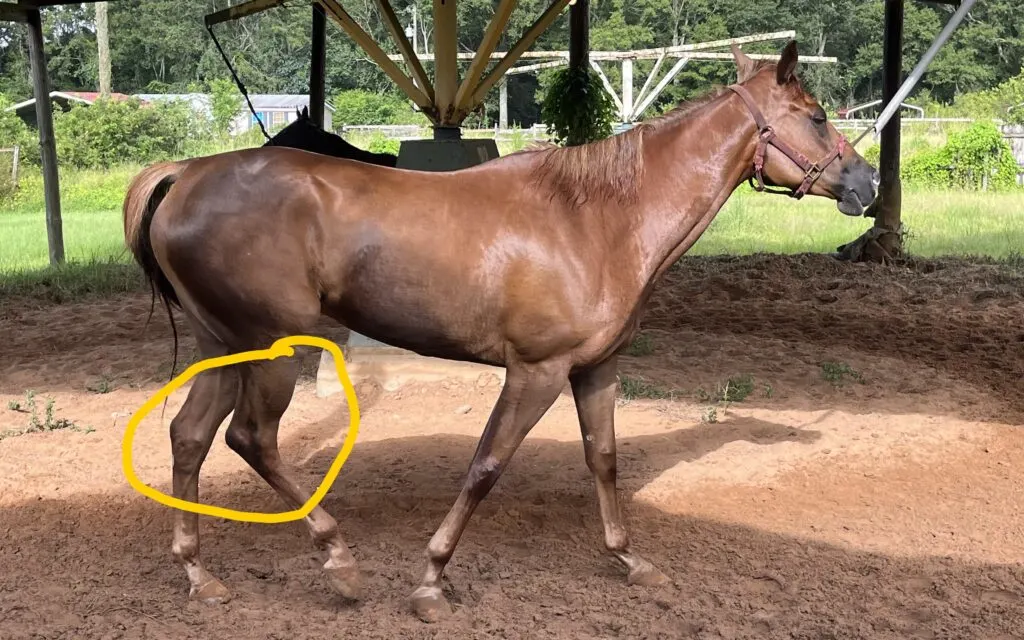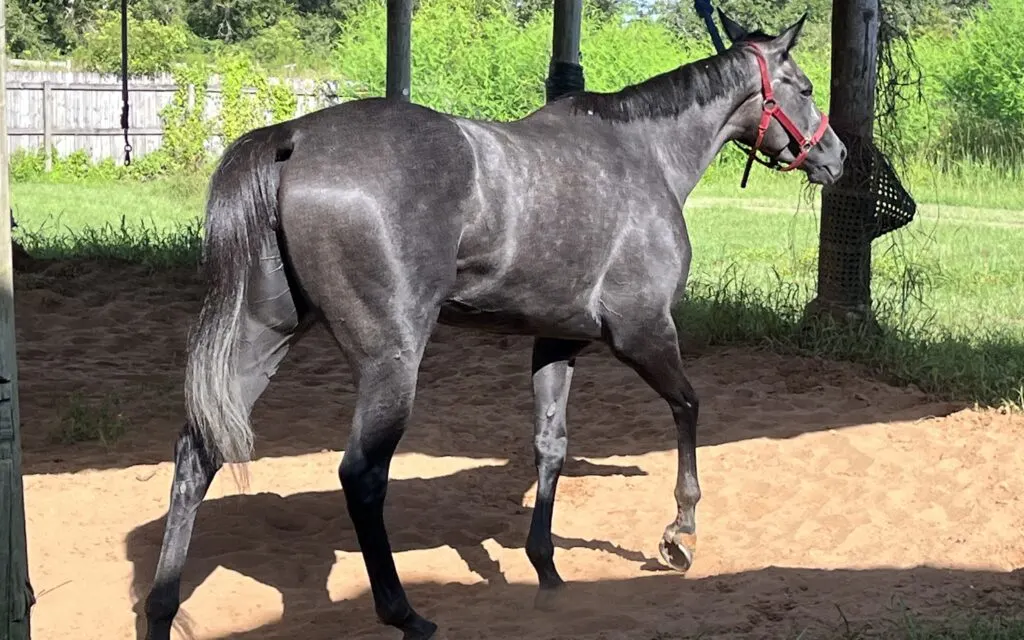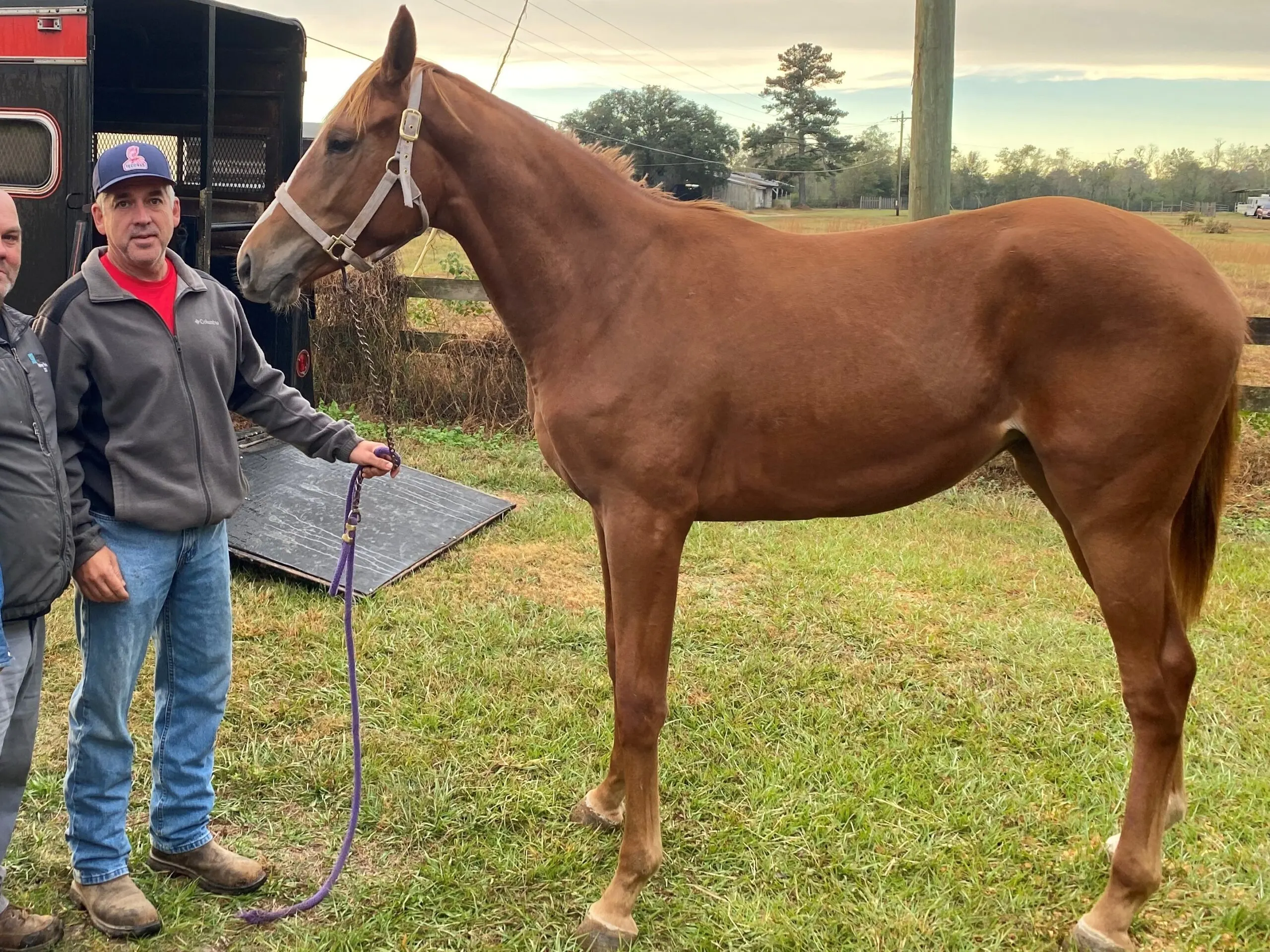Last updated: April 15, 2023
Any links on this page that lead to products on Amazon are affiliate links and I earn a commission if you make a purchase. Thanks in advance – I really appreciate it!
As a young boy, I was curious why horses’ joints clicked in their back legs. My grandfather always said it’s just something horses do, and there’s no real reason behind it. But as I got older, I knew there had to be a reason, so I researched the issue and learned a lot of interesting information.
Horses’ joints may click due to gas bubbles in their joints or because of a condition such as arthritis.
If a horse’s joints are clicking, it may be a sign of an underlying medical condition, and it is best to consult a veterinarian. However, most of the time, it’s harmless.
You might have noticed your horse’s joints clicking when they walk or trot. You might be wondering what this means for their health and soundness. You’re not alone. A lot of people have the same thought. This post will explore the common causes of joint clicking in horses and what you should do to help your horse. So keep reading to learn more.

Causes of clicking in horses’ back legs
Any horse owner knows the joints are vital to a horse’s movement. The joints allow the horse to bend and flex its legs and act as shock absorbers to protect the bones from impact. However, joints can also be a source of problems for horses.
But what about the clicking sound in a horse’s hind legs? First of all, it’s important to understand that joint clicking is not necessarily indicative of a problem. In many cases, it’s simply the sound of the joints moving.
However, if the clicking is accompanied by swelling or heat in the joints, it could be a sign of arthritis or another condition. The most common reason joints click is because of the release of gas in the joint cavity.
When horses are standing or moving around, they often shift their weight from one leg to another. This movement can cause bubbles of gas to get trapped in the joint cavity, and when those bubbles burst, they create a popping sound.
Another possible cause of clicking in horses’ back legs is the movement of tendons or ligaments over the joint. Tendons and ligaments are strong, fibrous tissues that connect muscles to bones and help to support and stabilize the joints.
Below is a YouTube video that explains clicking in horse’s hocks.
When horses move, these tissues can sometimes make a snapping sound when they slide off a bony surface and strike another hard surface. In one of our horses, we often notice this occurring in the hock joint.
In some cases, clicking in horses’ back legs may be the result of joint degeneration or other underlying medical conditions.
As horses age, their joints can become less flexible and more susceptible to wear and tear. This can lead to osteoarthritis, a condition in which the cartilage in the joints begins to break down. Arthritis can cause the joints to click, pop, or grind when the horse moves.
It is always a good idea to consult with a veterinarian if you are unsure about the cause of the clicking or if your horse is experiencing discomfort. A veterinarian can help to diagnose the underlying cause of the clicking and provide appropriate treatment to keep your horse healthy and comfortable.
For some horses, regular exercise and joint supplements can help keep your horse’s joints healthy and prevent clicking joints from becoming a problem. Other times a vet may prescribe joint injections and stall rest.
Joint health tips.
As any horse owner knows, joint health is crucial. There are a number of ways to help keep your horse’s joints healthy. One way is to make sure that your horse is well-exercised. Joints that are not used regularly can become stiff and more prone to click.
Another way to prevent joint problems is to maintain a healthy weight. Excess weight puts undue stress on joints, which can lead to wear and tear. Finally, you can also give your horse joint supplements, which help to keep joints healthy and reduce the risk of joint damage.

Is clicking in horses’ back legs a cause for concern?
In general, clicking in horses’ back legs is often not a cause for concern; As mentioned above, clicking can be caused by joint fluid or the movement of tendons and ligaments over the joint. These are normal and healthy processes that do not typically cause discomfort for the horse.
However, if the clicking is accompanied by other symptoms, such as lameness or swelling, it may indicate a more serious underlying issue. In these cases, it is important to consult with a veterinarian to determine the cause of the clicking and provide appropriate treatment.
Additionally, even if the clicking is not accompanied by other symptoms, monitoring your horse closely and paying attention to any changes in its behavior or appearance is always a good idea.
If you notice that your horse is limping, holding a leg up, or showing signs of discomfort when moving, it is important to consult a veterinarian as soon as possible to rule out any underlying medical issues.

What is the prognosis for horses with clicking joints?
For most horses clicking joints are not a problem. However, if it’s related to arthritis, the prognosis depends on the severity of the condition. Some horses may experience mild discomfort, while others may require medication or surgery to manage their pain.
While there is no cure for arthritis, there are many ways to manage the condition and help your horse stay comfortable. With proper care, most horses with arthritis can enjoy a good quality of life. However, the condition can progress, and some horses may not recover.
Conclusion
A clicking sound coming from a horse’s hind leg is typically caused by fluid in the joint. While this is usually not a cause for concern, if the clicking is accompanied by pain or swelling, there’s likely an underlying issue that needs to be addressed.
FAQs
Should you buy a horse if its joints click?
It depends on a number of factors, including the severity of the clicking and what might be causing it. If the horse is sound and comfortable, there’s no reason not to buy it. However, if the clicking is severe or accompanied by pain, you may want to reconsider.
What’s best to give a horse with clicky joints?
Supplement their diet with glucosamine and chondroitin sulfate. These supplements work well together to slow the breakdown of cartilage and reduce pain and swelling.
Meet Miles Henry
An avid equestrian and seasoned racehorse owner, Miles Henry brings his extensive experience to the equine world, proudly associating with the AQHA, The Jockey Club, and various other equine organizations. Beyond the racetrack, Miles is an accomplished author, having published various books about horses, and is a recognized authority in the field, with his work cited in multiple publications.
🔗 Connect with Miles:
Twitter
Facebook
YouTube: Check out race highlights, horse care tips, and more!

